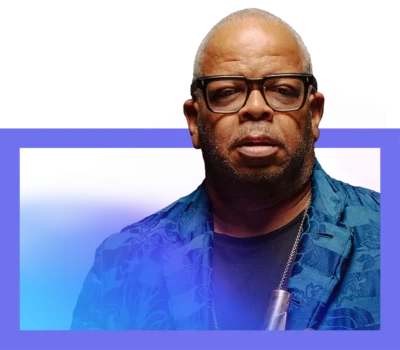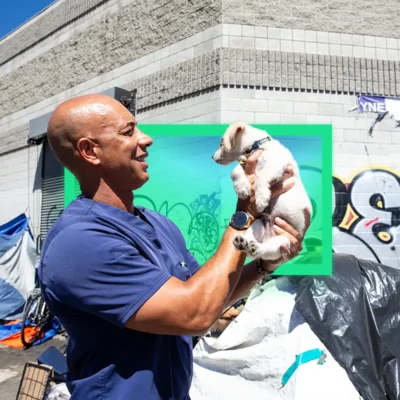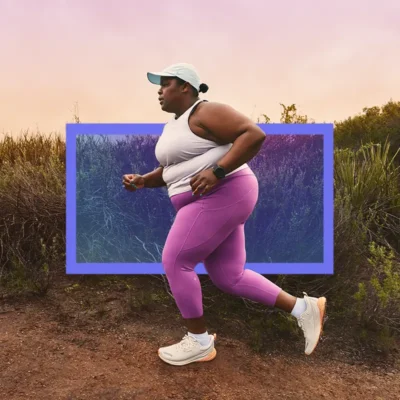Reaching our full potential is not a solo act
As a legendary Jazz trumpeter, winner of 5 Grammy Awards, and composer of over 60 films including the works of director Spike Lee, it’s easy to assume Terence Blanchard is someone with a lot of confidence. But growing up in New Orleans, he’s just a shy kid with glasses and a lot of uncertainty. In this week’s episode, Terence tells the story of how his mentors, teachers, and heroes gave him the confidence to find his voice and live to his full potential.
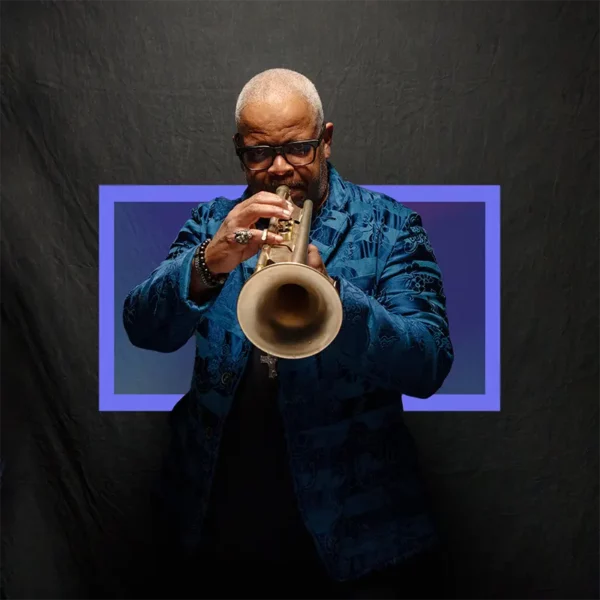
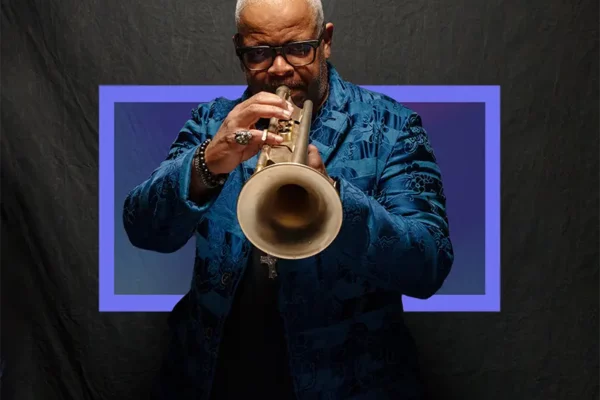
Table of Contents:
Transcript:
Reaching our full potential is not a solo act
TERENCE BLANCHARD: We’re in a tiny downtown Manhattan rehearsal space. There’s a piano, bass amp, drumkit, and no AC. It’s so hot today that Art takes his shirt off to play. To anyone else this would look ridiculous: A distinguished jazz legend rehearsing with no shirt. But to me at 20-years-old, Art looks like a king.
ROHAN GUNATILLAKE: Over the course of his career, legendary Jazz trumpeter Terence Blanchard has won 5 Grammy Awards, scored over 60 films including the works of director Spike Lee, and has composed 2 operas staged by the New York Metropolitan Opera. But growing up in New Orleans, Terence is just a shy kid with a lot of uncertainty about his future. It’s only with the guidance of his teachers, bandleaders, and confidantes that he starts to see that the future he wants is actually possible. This week, Terence tells the story of how the many mentors he encountered in life gave him the confidence to experience his true potential.
In this series, we combine immersive first-person stories, breathtaking music, and mindfulness prompts so that we may see our lives reflected back to us in other people’s stories. And that can lead to improvements in our own inner lives.
From WaitWhat, this is Meditative Story. I’m Rohan, and I’ll be your guide.
The body relaxed. The body breathing. Your senses open. Your mind open. Meeting the world.
BLANCHARD: My hands grip the steering wheel as I turn onto a wide residential street in Pontchartrain Park, of New Orleans. I smell the old leather of the car’s interior. Feel the rumble of the engine in the soles of my feet. I flex my fingers a little and nervously check my mirrors. I have no idea where we’re going. I’m just following the car ahead of me.
“Slow down, boy,” says my dad from the passenger seat. With his gray hair and those black horn rimmed glasses. I’m 15 years old and only just got my learner’s permit. Dad doesn’t want me messing up his car. So I check my mirrors and put on my seatbelt.
In my rearview mirror, I catch a glimpse of two old men in the backseat. They’re laughing at some joke I don’t understand about a composer of an opera libretto. These guys are real music nerds. I can’t help but think how strange they are.
The brake lights in front of us suddenly glow bright red. Our caravan of cars slows to a stop. Through the windshield, I see a large home decorated with twinkling lights. It’s Dr. Cook’s house. He’s the president of Dillard University.
I turn off the engine and step out into the cold. I watch 8 grown men get out of three cars and slowly make their way up to the house. These guys aren’t speed demons, not at all, but they’re full of grins and laughter. This is my first year joining my father and the other men from the church choir as they go Christmas caroling.
Dr. Cook and his family greet us at the door. They’re already in their robes because they were getting ready for bed. But they’re happy to see the carolers. “We’ve been waiting on you guys all night,” they say.
Once inside, Dr. Cook’s house is full of old style furniture. Antique looking. Like it belonged to Louis the 14th. My father and the choir gather on the shag rug near the Christmas tree and launch into a rendition of “Silent Night.” Big, big, mostly baritone voices with a couple of tenors. Choral music in the Black community has a very distinct sound. They put heavy accents on the words. And each of these guys has a different vibrato. Some fast, some slow. It sounds kind of funny. But they’re singing from the heart. Dr. Cook and his family are all smiles.
Me, myself, I stand in the corner. I’m a shy kid, and dad knows I can’t sing. The only reason they brought me is because I don’t like eggnog. They have a glass mixed with brandy at every house. By the end of the night, I’ll be the only one fit to drive.
As I watch these men, I wonder how long they’ve been doing this? Choosing to spend Christmas Eve bringing joy to other people’s homes. They’re not professional musicians or singers. They’re doctors, accountants, dentists, and lawyers. They look dignified, mostly because they’re just coming from work, but partly just because that’s who they are. They’re proud, successful, creative, and they have so much fun doing things that other people might deem as being corny.
These guys are nothing like the Black people I’m used to seeing on TV or in the movies. They’re not like Amos and Andy. Not downtrodden or lazy. They always call each other Mister followed by the first name. Mr. Gully. Mr. Oliver. It’s their way of giving each other respect in a world where respect isn’t always given because of the color of their skin. It’s the 1970s in the south. In many ways, society doesn’t allow Black people to see themselves as doctors, lawyers, or opera singers. These men don’t care to fit into the boxes mainstream culture allows.
When they reach the end of “Silent Night,” Dr. Cook puts on his glasses and gives a little speech about how much it means for the choir to drop by. And then the eggnog comes out.
Seeing these men do something they love and are passionate about — that’s so uniquely them — makes an impression on me. I start to think about my own passions. My own voice. The potential that exists for me as I find my own way.
Roger Dickerson’s studio is almost like a greenhouse. This room at the back right corner of his home has sun shining through big windows on two different sides. There’s sheet music everywhere — in folders and stacks on top of the piano, on shelves, and on the floor. But it’s not cluttered. It’s very organized. It smells like pencil shavings and history.
I only recently started taking composition lessons here, but every time I show up I feel like I’m impeding Roger’s progress in writing a piece. He’s a great musician and composer. A known figure here in New Orleans. Roger usually teaches college students, and I’m still in high school. I can’t help but wonder how many musicians studied in this room before me. How do I fit into this legacy?
That’s what’s going through my head as I finish scratching out the last few bars on my writing assignment and hand the completed piece of music to Roger for review. He’s an imposing man, with long limbs and a beard. When he speaks, his cadence is very slow and deliberate.
“This is nice,” he says as he scans the composition.
He continues down and then stops. Damn! Out comes that red pencil. He zones in on an area and says, “Now, right here,” and circles it in red. “You should think about this” is what he says.
I think to myself, “Next week. Next week I’ll write something so perfect he won’t be able to say a thing.” When he hands me the sheet of music back, I count up all the red marks. I make notes, and I go home ready to change it.
“Terence,” Roger says. “What do you see yourself doing 10 years from now?”
I look down, and the first thought that comes to me is: “I don’t know.” No one has ever asked me that before.
Roger puts up a hand. “No, no, no. Think about it. Give me a real answer.”
Then he waits for me to give him an answer.
The truth is, I have a lot of anxiety about my future. I know I want to play music. But I struggle to see a pathway for it. When I tell people I want to be a jazz musician, they all tell me I’ll starve. I figure, if I’m lucky, I’ll end up playing horn in a pop band.
Still, I work hard. I put in the time. I practice on the weekend, while I hear kids I know from school playing football down on the street. They pass by our house and see me in the bay window playing my horn or practicing my lesson at the piano. On Saturday, while on my way to my lesson, I walk to the bus stop carrying my trumpet and they all point and laugh.
I know I’m different. Not confident. I wear black, turtle shell glasses. At that time I didn’t listen to popular music on the radio. For me, it’s only jazz. I get these jazz records, and I listen to them over and over. I study the greats: Dizzy Gillespie, Clifford Brown, Miles Davis. I want to be able to do what they do.
But Roger’s question makes me feel like I need to be thinking about more than just being a performer. No one has ever made me project like this. For the first time, I start really thinking about what’s possible. What do I want to create that’s meaningful?
I tell Roger, “I want to lead a band filled with musicians from all over the world. I want to work with large ensembles, and I want to be writing music for all different projects.”
I’m talking so fast, the ideas just pour out of me. I know I don’t want to add to the negative stereotype of African Americans. I don’t want to be limited to that box. I want to be a part of something that helps open people’s eyes to the vastness of who African Americans have been throughout history.
My face goes a little red. Was that a stupid thing to say? Should I have been more realistic? But Roger just nods and says, “Ok, Terence.”
As a mentor, Roger demands that I create a bolder vision for myself. A vision I hadn’t previously considered or thought possible. And then he makes me feel like my thoughts aren’t crazy. It opens me up. Gives me a different kind of confidence. If he thinks I can do it, maybe I can.
GUNATILLAKE: It can often take the perspective of another person for us to be able to frame our ambitions and to help us feel comfortable in them. Who has done this for you? A coach, a family member or perhaps a teacher. Bring them to mind. Let the immediate feeling of remembering them bring energy, bring warmth, bring gratitude even.
BLANCHARD: “Terence, what you got?”
I clear the spit valve on my trumpet and look over at the man who just said my name. The man behind the drumset. The great bandleader, Art Blakey.
We’re in a tiny downtown Manhattan rehearsal space. There’s a piano, bass amp, drumkit, and no AC. It’s so hot today that Art takes his shirt off to play. To anyone else this would look ridiculous: A distinguished jazz legend rehearsing with no shirt. But to me at 20-years-old, Art looks like a king.
I clear my throat, and I say, “This is for Albert.” My band members nod in agreement. Art counts off, and away we go.
I’m still getting used to being musical director, the one who calls the tunes for the band. One day, a few months ago, Art pulls me aside and tells me he’s giving me this responsibility. “You’re too shy. You need to come out of your shell and learn how to speak up.” In my mind, I know he’s right.
You would think earning a spot in Art Blakey’s band would give me some confidence, but I’m still painfully shy. I still feel like I have so much catching up to do. As a kid, I studied Art’s records backwards and forwards. I have so much respect and admiration for him and all the musicians who played with him. Clifford Brown, Lee Morgan, and Freddie Hubbard. Now I’m standing where they stood. What do I have to bring to this table?
Art would pop the snare drum, and then he would talk to us about playing with dynamics at certain spots of the tune after just playing it only one time. He had a photographic memory.
That’s what playing with Art is all about. Hunkering down. Doing the work. Not just for the sake of being the best, but to be respectful of the band’s history. To be protective of it. All the time, he says, “If you’re not careful, one day you’ll wake up, and Thelonious Monk will be white. Charlie Parker will be white.” We know what he means. This music is important to the history and legacy of African Americans. You have to maintain a certain level of integrity. You have to keep the music safe from being misconstrued. I’m reminded of those men in my dad’s choir. The passion and reverence they had for what they did.
It’s not easy, but it’s worth it.
The day I audition to be in Art’s band, The Jazz Messengers, I step off the stage beaming. I won my seat in the legendary group. But when Art walks up to me and shakes my hand, he pulls me aside says something I don’t expect: “Forget Dizzy, forget Miles, forget all those other trumpet players. I need you to be you.” I panic and break out into a sweat. I think, “Wait a minute. I don’t know what my sound is.”
I’m still musically naive in a lot of ways. I keep waiting for that magic moment when it’ll all come together. Working with Art reminds me that you gotta put in the effort. Like the Bible says, “Seek, and ye shall find.” It doesn’t say “Ye shall find.” You have to seek first. So every day, I show up, and I play. I get a little better; I get a little more confident. I begin the long journey of trying to figure out who I am as a musician.
I play with Art for four years, but, man, I feel like I age 40. It’s like going from college to the pros. From bootcamp to the frontlines. Things come at me at 200 miles per hour, and I have to learn how to process information quickly.
Art Blakey’s mentorship gives me more than just practical skills. It gives me the confidence to stop emulating my heroes and find out what I want to say. And it teaches me that that kind of confidence doesn’t come easy. It doesn’t magically happen. You have to see the future you want, like I did in Roger’s studio, and you have to do the work.
When I leave the band, Art tells me, “This isn’t the end. This is the beginning of you making your contribution to the world of music.” The way he sees it, I believe it.
GUNATILLAKE: Perhaps part of thanking our own mentors is to be one to others. How does the idea of being a mentor yourself land? How does your inner voice respond? How does your body respond? Either way, how about we make the intention — if you aren’t already — to be open to opportunities to be that person and share your wisdom.
BLANCHARD: I’m sitting behind the desk of my office on the University of Southern California’s campus. It doesn’t have any windows. Just a square room. White walls with a desk and a little iMac computer. But it works well enough for private lessons with my students.
I’m here teaching with the Thelonious Monk Institute — a program for jazz students, mostly in their 20s, that takes them beyond the normal level of college education. Sitting across from me is a trumpeter, Ambrose Akinmusire. I’m 47. And now I’m the one doing the mentoring.
All the kids at the Institute are good, but everyone can tell Ambrose is a real artist. He just has his own voice. He’s unapologetically himself. He already has such great ideas, really most of what I want to do is change just the way he plays the trumpet. Improve his technical skills.
But for today, our session is winding down. Ambrose has put his trumpet away, and we’re just talking — having one of many deep conversations about art and music, where we talk about him finding his voice, doing what it takes to hang in there, dealing with this business. As our talk naturally gravitates towards what he plans to do with his career, I stop him for a second and ask, “Ambrose, what do you see yourself doing 10 years from now?”
I ask all my students this, and they don’t all have an answer. Some of them shrug and say, “I don’t know.” Some of them are waiting for divine guidance to help them through. But I push them to think about it. I tell them it’s important to project. To really see yourself being on stage, looking out at the audience. To put yourself in the mindset of being a working, practicing, performing musician that’s contributing to the world of music.
I know projecting is important because it’s what helped me finally get where I am. To a place where I’m leading a band full of musicians from all over the world. Writing scores for films, working with string quartets, and composing my own operas.
I don’t limit myself by what the prevailing culture says someone who looks like me is capable of. And I’m not trying to be something that I’m not. It took a long time, but I’m finally starting to get comfortable with what it is that I do. I know I like melody with a singable quality. I like sounds that go from warm and inviting to shrill and exciting. It’s still hard for me to describe, but I know I have my sound.
That’s all thanks to the teachers, friends, and role models I’ve had throughout my life. Roger Dickerson, Art Blakey, Martha Francis, Bert Braud, Louise Winchester, George Jensen, Ellis Marsalis, Herbie Hancock, Wayne Shorter, and my father, just to name a few.
Now that I’m in the mentor position, I know that these guys didn’t have all the answers. I can only give guys like Ambrose my experience up until this moment. But I also know that good coaches give us so much more than just experience. They give us the confidence to be the best versions of ourselves. To see a future we didn’t know was possible and go after it, no matter how old we are or where we are on our journey. Whatever your passion is, whatever it is that you do, it’s important to have mentors that give you the confidence to experience your true potential. To seek and to find.
Rohan’s closing meditation
GUNATILLAKE: Thank you Terence.
When we have a storyteller who is a musician, I love listening to their work as part of my preparation — trying to get a sense for them in a dimension different to the story that they’ve shared. And it was such a pleasure to listen to Terence’s work. So I really loved it when he talked about how he knows what his voice is but still finds it hard to describe, I guess perhaps because it’s not really expressed in words.
Part of my voice — if you like — as a meditation guide here on the show is to create practices based on moments from the stories we hear, and that is what we’ll do today.
There are three moments that we’ll use as inspiration today for mini, micro practices, and the first is back when Terence went out caroling as a teenager. There was a way he described the voices as being a feature of Black choral music, what was it? “They put heavy accents on the words.”
So our first practice will be about having heavily accented attention. What does that even mean?
In mindfulness when we make the decision to pay attention to something, say our breath or our body sensations, our attention, our awareness is often quite light. We say things like, “gently drop your attention on the breath” or “just place your awareness on the body.” This time, we’ll try really layering our attention on, thick accented attention.
So choosing a part of the body, okay let’s go with the hands. Jam all your awareness there on the hands, onto the hands. Into the hands. Our hands soaking with our attention. Get a sense for what that feels like.
Now moving to the chest, the heart region. Again, we’re exploring what it might mean for our attention to be heavily accented. Slamming all of our awareness into the chest region, eking out every sensation we can there.
Hands and heart. Soaking with our awareness.
Now let’s try something else. With his mentor Roger, Terence was asked to imagine himself 10 years into the future. He then used that technique in his own role as a teacher. Our version of this won’t be 10 years, but 10 breaths. Notice what your experience is like now and quickly imagine what it’ll be like in 10-breaths time.
And now, we’ll count 10 breaths together in and out.
One, one.
Two, two.
Three, three.
Four, four.
Five, five.
Six, six.
Seven, seven.
Eight, eight.
Nine, nine.
Ten, ten.
How is your experience now? Can you remember how it was before? Is it how you imagined it might be? Or is it different?
Okay, now for our third Terence-inspired practice, let’s actually do the 10 year thing. Think of a quality or if you like, qualities that you aspire to growing in yourself over the next 10 years.
And however works for you, visualize or imagine yourself expressing that quality.
Noticing also any commentary or self-judgment that arises along with it, letting it just fade away.
So I know I said we were only doing three micro-practices, but now we’re in the flow. Let me point to another moment in Terence’s story to finish. When he’s musical director of Art Blakey’s band, part of his role is getting to choose what song to play next.
So how about you be meditation director to close us out. Which of the three micro practices we’ve just done, do you fancy spinning up for one more round?
As a reminder, we did heavily accented attention on the body, using the hands and the heart.
Then we noticed how the mind was and took 10 breaths to see how it changes.
Or, you can choose visualizing yourself in 10 years time, expressing the qualities you want to grow.
All great tunes, but we’ve only got time to do one, so take your pick, give it a whirl, and I’ll see you in about 30 seconds time.
Lovely choice, and nicely done.
So thank you Terence for your effortless inspiration.
And thank you, for yours.
We’d love to hear your personal reflections from Terence’s episode. How did you relate to his story? You can find us on all your social media platforms through our handle @MeditativeStory. Or you can email us at: [email protected].
